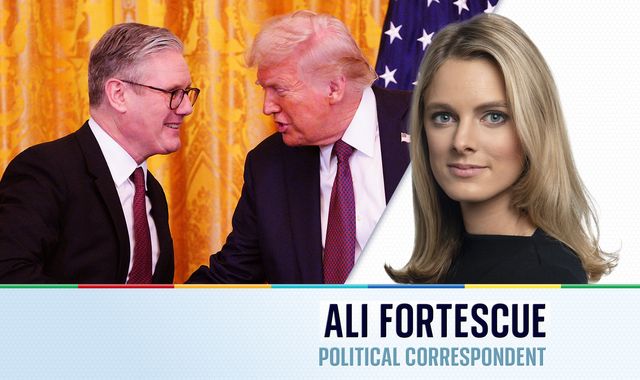More than 400 pages of thousands of goods that could be affected by reciprocal tariffs against the US.
Everything from fresh domestic ducks to sea-going dredgers makes the cut; most symbolic, however, are iconic American items like jeans, motorcycles and whiskey.
Would Donald Trump stand for a levy on Levi’s? It’s not the first time this battle has played out.
When the US president announced tariffs on steel and aluminium in his first term, the EU responded with its own – including a symbolic 25% tax on American whiskey.
At the time, the UK, then an EU member, followed suit.
But as the UK tries to carve its own path outside the bloc, vindicated by the baseline 10% tariffs imposed instead of the EU’s rate of 20%, the aim is to avoid retaliation.
The government want us to know “all options are on the table” – but that is not how they want this to play out.
“This is not a short-term tactical exercise,” the prime minister said this morning.
Despite the business secretary’s best efforts during his recent trip to Washington to try to secure a UK tariffs carveout, no deal was reached in time.
Mr Trump wanted his big bang, board brandishing moment; carveouts for certain countries would have softened the impact of his speech.
But with 90-plus countries on the tariff billboard, how far along the queue is any UK deal?
And how much are we willing to give? Will the sensitive subject of chlorinated chicken be on the table? What of the agreement to cut taxes on big tech companies that Mr Trump wants?
Lots of questions. The day after the surreal night before is too soon to know all the answers, but this is about politics as much as it is about economics.
Read more:
There were no winners from Trump’s tariff gameshow
Do Trump’s numbers on tariffs really add up?
As the prime minister launched Labour’s local election campaign in Derbyshire today, he talked about potholes, high streets and school meals. Every question I heard was about tariffs.
Decisions made across the Atlantic are looming large. Tariffs may not directly sway many votes in the local elections, but the consequences for Rachel Reeves’s fiscal headroom and the amount of money she has to spend, or save, will have an impact before too long.






























